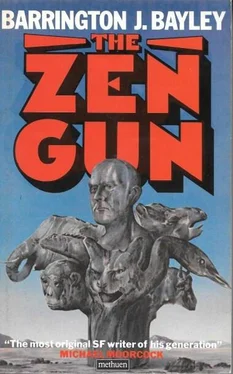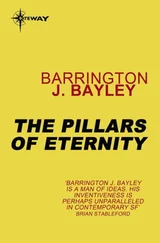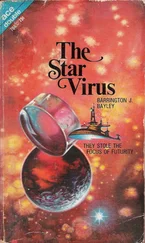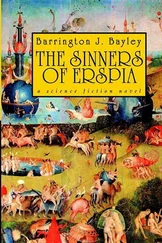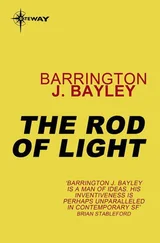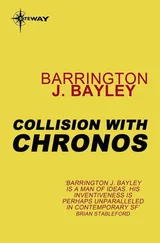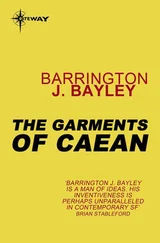Somehow or other he got into formation. The fleet withdrew from the system, meshing bubbles, and hurtled for the unknown.
Diadem—Galactic Diadem, or the Jewel in the Galactic Crown, as it was variously known in official documents—presented to the approaching visitor a splendid sight of depth within depth, of stars of every size and colour grouped, constellated, strewn and focused in patterns of dazzling complexity that no jeweller could ever have equalled. Perhaps even more exciting, to one from the outer parts of the Empire was the thought of the splendours, invisible from his first vantage point, of the inhabited planets Diadem contained. In the past the development of the Diadem worlds had been on a colossal scale. There were cities which, like the starry perspective of Diadem itself, exhibited depth upon depth of architectural glory, though many of these were inhabited mainly by animals now, and there were worlds galore with sculpted climates and reconstituted biospheres that rendered them planetary paradises, each according to the private tastes of its owner, though maintenance had been cursory in the decades of the robot strike and on some of them nature had already begun to take its own course.
How it appeared to the large vessel that entered, with the permission of the Imperial Council (Diadem being one of the few regions of the galaxy where absolute territorial rights between alien races were respected), and leisurely made its way to a slightly bluish sun, was a different matter. The Methorians did not see in the comparatively short wavelengths that composed the visible spectrum for humans, and in fact did not see sharply defined solid objects at all. On their own planets were no standing cities, no fixed structures but instead gauzy rolling masses that floated and circulated within the atmospheric bands characteristic of gas giants.
Imperial Council Member Koutroubis arrived at the fifth planet of the sun only a short time ahead of the scheduled meeting with the Methorian delegate, an event he did not look forward to in the least. The planet, a light-year from the group of worlds where the Council was accustomed to sitting, was a private residence that had been chosen mainly for its placid traffic-free atmosphere, but also because it was the home of an old friend of his who was always willing to do a favour.
Oskay Rubadaya, white-haired man of middling years, waved his arms in greeting as Koutroubis’s official statecar descended to land just outside one of the many lodges he had dotted about the planet. The lodge itself was a rambling construction extending for about a mile in any direction. Before it there stretched a level meadow of pale green moss reaching almost to the horizon—the reason why the site had been selected. On its fringes arboreal parkland began. It was Rubadaya’s pleasure to go for long walks through that parkland, a recurring feature over the whole planet. He was particularly fond of trees; the parks had been planned and planted by a tax-item artist from one of the outer regions of the Empire.
Koutroubis stepped down from the statecar. “Hello Oskay.” He sniffed the air. “Why, how… er, odd the atmosphere seems.”
“ Innocent is the word you’re looking for,” Rubadaya chuckled. “What’s unusual is that there’s nothing artificial in the atmosphere. No perfumes or psychotropics. Mostly what you’re smelling is tree resins.”
“Mm, I see.” Koutroubis glanced anxiously at the sky. “I’m a little early.”
“Then come and get some refreshment.” Rubadaya led the way through the entrance to the lodge and into a spacious timbered room. He called out several times, until eventually a household robot sauntered casually in.
“Um, this is the Council Member I told you about, Hoskiss. I was wondering if you would be good enough to mix us some drinks. This is a special guest.”
A sighing noise came from the robot’s speaker. “Of course, sir,” it said, in a tone conveying something other than servility. With perfunctory correctness it moved to a cabinet, busied itself with squirts and gushes, and served tall glasses on a tray.
“Thank you, Hoskiss!” Rubadaya said fulsomely. “I really am grateful.”
“I hope so, sir. Now if you’ll excuse me, I’m going to sun myself on the patio for the rest of the day.”
The robot left. “Well at least you can get him to do something for you,” Koutroubis smiled.
The robot union gave household robots total discretion as to how or whether they served their masters. Rubadaya shook his head in exasperation. “He does just as he likes,” he said. “You know, we have to pay them more respect than if they were recognised as sentients. As least as second-class citizens they’d have to do what they were told! Why don’t we give them what they want?”
“Please!” Koutroubis groaned, putting his hand to his forehead. “No more problems now! We’ve got enough as it is!”
“Just as you please,” Rubadaya, like most humans in Diadem, lived virtually oblivious of political matters. He was one of those who took the Empire for granted but didn’t even seem to care if it was maintained or not. Sometimes Koutroubis wondered if he should resent such profound disinterest, but there was no way round it. One couldn’t have a free society and coerce people as well—not, at any rate, the most privileged and civilised members of that society, which in his case meant the first-class citizenry of Diadem.
He sucked his drink through the straw provided. “What’s the population of this planet?” he asked conversationally.
“There are three of us. Fuong, who spends most of his time on an island chain on the big ocean—that’s just about diametrically opposite us here—and an old lady who’s built herself a town on the equator. She has a few animals with her. It does feel a bit crowded sometimes. Always seem to be bumping into one or the other of them, though I suppose a bit of company is welcome occasionally,” Rubadaya shrugged. “As I’m the freeholder I could ask them to find planets of their own, but it wouldn’t be neighbourly, I feel.”
He laid down his glass. “I’m curious about this meeting. It sounds so awkward. Couldn’t messengers be used instead, or something?”
“I’m afraid not,” Koutroubis said with a deep sigh. Methorians had a gaseous metabolism instead of the liquid one evolved in water oceans. The structure corresponding to the basic cell was a balloon-like gasbag. And communication was accomplished by means of gaseous diffusion of coded molecules. “When Methorians parley,” he explained, “they engulf one another in a mutual gaseous effusion. There has to be personal proximity, or nothing significant has happened. They insist on the same in their rare dealings with us. Apparently they feel psychologically that we haven’t taken any notice of them, otherwise.”
“What kind of ‘gaseous effusion’ are you going to give off?” Rubadaya asked with amusement.
“That’s all arranged.”
“Why does it have to be us who accommodate them?” Rubadaya rubbed his chin thoughtfully. “Isn’t their technology more advanced than ours? You’d think gaseous creatures, especially being as huge and fragile as they are, would find it pretty difficult to be space travellers at all.”
“Yes, they are pretty big, and unwieldy, as you say. But I wouldn’t say their technology’s any better than ours overall. Perhaps not as good. They are a much older race than we are, but everything’s taken them much longer. For their first few million years they had no proper concept of a solid object, for instance.
“Actually they use a trick for space travel: they compress themselves. It’s possible for a gas creature, you know. It’s uncomfortable, I believe, but without it their ships would have to be simply enormous. They’re ten times the size of ours as it is.”
Читать дальше
